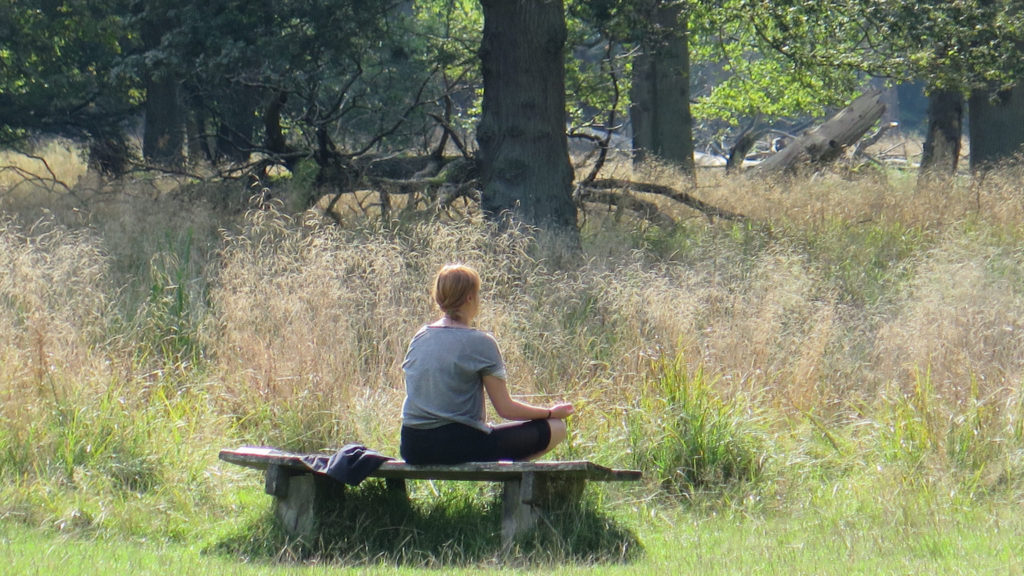To help you understand what this project is encouraging you to do, I shall give you an example told by my friend about a Zen-Buddhist disciple.
Attention
After many years of deliberate practice under the supervision of his master, a disciple collected all his courage to tell his master he thinks he is enlightened and prepared well enough to go to the world. The master asked him one question: “Do you remember on which side of the door you have put your shoes before entering my house?” The disciple was bewildered by this strange question but unfortunately did not remember it. The master explained: “How can you consider yourself to be able to lead a conscious, responsible life of enlightenment if you do not remember where you have put your shoes.”
Can you imagine a life of total responsibility, when every single, smallest act is done for a good reason? I am not talking about the choice of profession, the choice of employer, or the place to live. We are usually aware of their importance and consider them thoroughly. But I am talking about the choice of toothpaste, the choice of the coffee we drink, the choice of how we spend this evening, or what we are going to have for dinner. It is not possible to spend a long time considering on which hanger we hang our car key, but it is possible to have a habit of hanging it in a certain place. The disciple did not have the habit of putting his shoes in the same place; this is why he did not remember where he put them. The same is true with our smallest acts. The next time the disciple will remember and will shape his habit by putting his shoes in the same place. However, I do not think this would be possible without reflection initiated by his teacher.
Two methods to do immediately
Reflection

cc by Lisa Risager at flickr
If I were to say what would be the most important 15-minute habit to develop to begin to change our life and become more human, it would be reflection over the past day. Depending on your life situation it may be better to reflect in the evening or in the morning of the next day. First, think about everything that went well. Go hour by hour through the day, and if you find many good things be grateful for them. Next, think about the failures of the day. What have you done wrong? What have you said that should not have been said? What would you do differently? If you have a problem with remembering the day by hours, you may try to remember it by persons or places. It all depends on what you do. What were your interactions with everyone you met? Such reflection is nothing more than a self-feedback and feedback is the first and most important factor in learning. Of course, we sometimes cheat ourselves and try to make sense of our failures and interpret them as successes. It is ok if it is I never lose, I either win or learn. It is dangerous if you finally decide that in fact, you wanted the failure to occur. This is why if you have an authority that you value highly, you may also look at your day from his or her perspective. In any case, it would be advisable to seek external advice to find out if your reflections are leading you in the right direction.
Co-operation
There is another way to start a deliberate practice if you cannot find or afford a mentor. Some time ago, I participated in a group of personal development. We used to meet once a month, and everyone was allowed to bring a life question to the group. As there were about ten people of different professions, family situations, incomes, etc., the variety of answers was also tremendous. It is worth remembering that if there are 10 participants and each is given 10 minutes for the question and the answers the whole meeting may take two hours, especially if you add short intro “what’s up” from each participant and a short summary at the end. The group cannot be larger than 12 people. I found it very useful then. You may start a group like this and invite a variety of people to it. It is not recommended to create a group of persons from the same place of work. Such groups are useful, but for the development of the place of work and not personal development.
In future posts and tools we will also give you feedback. Remember that we have chosen domains mainly related to professional life. You may want to select and develop other domains as well.
Further reading
If you want to learn more about the development of expertise I recommend the book by an authority on this topic:
Anders Erickson: “Peak: Secrets from the New Science of Expertise.”
It is rather complicated but full of interesting examples and descriptions of research in the field.
If you are looking for an easy-to-use guide, I recommend:
Steve S.J. Scott: Novice to expert. 6 steps to learn anything, increase your knowledge, and master new skills.
| PREVIOUS | NEXT | ||
| Personal development as a deliberate practice |






 The participation in this project is free because it is financed by a grant of the European Union -
The participation in this project is free because it is financed by a grant of the European Union - 